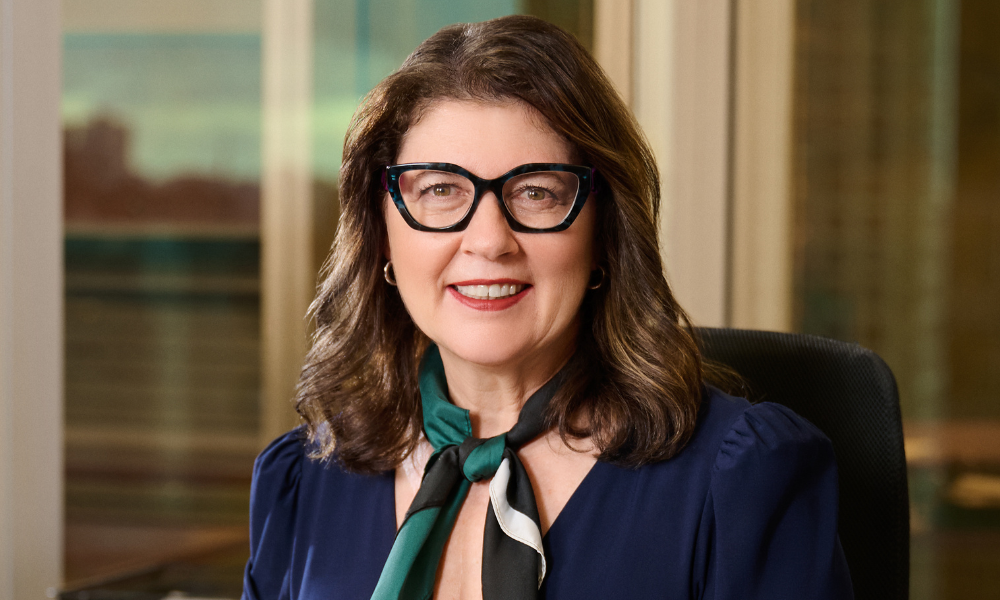WHEN A PROPOSED MERGER between Canadian online gambling company Amaya Inc. and UK betting giant William Hill fell apart last week, larger questions were raised about the sale or merger prospects of any company whose former senior management has been accused of securities violations.
Whether it kills the company’s chances of finding a new partner is largely dependent on a few factors, says Teresa Tomchak, a securities and corporate lawyer at Farris, Vaughan, Wills & Murphy LLP in Vancouver. “The most important is the type of company, and the company’s reliance on management,” she says. Many blue-chip companies, for example, don’t want to be associated with that type of potential wrongdoing “and therefore are more likely to walk away from the deal.”
But there are also companies or investors who see insider trading allegations as leverage to negotiate a lower valuation. “The uncertainty surrounding the types of allegations leveled in Amaya provide a legitimate basis for arguing that a price reduction is warranted.”
Amaya’s problems surfaced in March when Québec’s L’Autorité des marchés financiers announced it had filed 23 charges of insider trading. Five were leveled against founder and CEO David Baazov, with the remaining 18 allegations divided among three companies and two individuals: one a childhood friend of Baazov, the other an Amaya adviser. Baazov, who has resigned as CEO but remains a major shareholder, says he is innocent of the charges.
The Québec regulator also executed search warrants and obtained freeze and cease-trade orders against 13 other people, including Baazov’s brother Josh. The AMF accused them of trading on inside information, alleging they made a profit of about $1.5-million on trades between 2011 and 2016. In September, the stakes got even higher when the AMF accused Baazov of being part of a kickback scheme where he received a portion of the trading profits.
There is no allegation of wrongdoing against the company itself.
The first charges and raids came weeks after Baazov announced he wanted to take the company private, a development that led Amaya’s independent directors to start a review of strategic alternatives that ended up with the proposed merger with Britain’s William Hill. The regulatory problems didn’t scare the UK company off (Amaya has not been accused of any wrongdoing). However, its largest shareholder, Parvus Asset Management, stated in an open letter that “this deal doesn’t pass the smell test” and that it would not be supporting it. The planned merger was called off, sending Amaya’s shares plunging 8.3 per cent.
Amaya now says it can best deliver shareholder value by remaining an independent company.
Sharon Geraghty, an M&A practitioner at Torys LLP in Toronto, says that generally speaking insider trading charges can be “hugely damaging” to any company and there is reputational risk in doing a deal at that point.
“If I was acting for a company under those circumstances, generally I’d advise them it’s not the best time to go to market. There’ll be so much noise around the deal buyers will get nervous, and may ask themselves: ‘Do I want to get involved with a company with senior people under regulatory investigation?’ The concern is always, ‘Who knows what else is there?’ You buy a company, you buys its problems.”
Still, online gaming is a hot area and another partner may be waiting in the wings. Reuters reported the Canadian gaming had previously received interest from GVC Holdings GVC.L as well as some private equity firms. The question is, will they be back?
From an M&A perspective, a regulatory investigation would be a significant focus of any due diligence, Geraghty says. A security investigation surrounding one or more of its senior officials, “even if they’re no longer there, would make you nervous. You’d want to know if whatever they were doing that’s being investigated infects the company. Does it indicate a culture of non-compliance or risky behavior that you would be concerned about?”
Amaya’s woes are not confined to Canada. In December a Kentucky court ordered the company to pay US$870 million in penalties to cover losses by state residents on its PokerStars website (that decision is under appeal). These days, Geraghty says, a lawsuit is not necessarily going to spook a buyer because there is a growing trend toward insuring against that kind of risk in a transaction. “Insurance company are becoming much more creative and much more prepared” to insure potential buyers against eventual damage awards and settlements.
Amaya’s is the largest insider trading investigation in Canada to date, as provincial regulators vow to make a crackdown a priority. Lawyers across the country say they are seeing it. “In almost every large deal, we get a request from the regulators for information identifying everyone with knowledge of the transaction before it was announced,” says Teresa Tomchak of Farris in Vancouver. Regulators have been asking for more information than they previously requested, including chronologies, she adds.
It’s no secret that provincial regulators have been frustrated by their failure to secure more convictions in insider trading prosecutions. They lack the authority to tap phones to secure hard evidence, for example, so are often forced to prosecute on circumstantial evidence. They must also often rely on the catch-all of behaviour “contrary to the public interest” in the absence of more specific statutory provisions.
Ontario moved to address this problem in July, shoring up its Securities Act with amendments to clarify insider trading violations, says Jeffrey Leon, co-head of the litigation department at Bennett Jones LLP. The amendments prohibit a person who possesses undisclosed material information “from recommending trades or encouraging others to trade in the securities of the issuer.”
That means someone who has information that a company is about to make a major acquisition cannot recommend it or encourage someone else to buy shares even if he or she doesn't mention the planned deal. “It is clear. If you have inside information, you can't use it to cause others to trade,” Leon says.
“That’s closed the gap in the insider trading rules,” he adds. “There is now certainty. That's preferable to relying on after-the-fact decisions on what may or may not be contrary to the public interest.”
Leon says that while provincial regulators are serious about clamping down on insider trading, it’s impossible to know how much of it they’re catching, versus how much people are getting away with. “That said, there is an emphasis on getting away from the boiler rooms and focusing on the serious misconduct in the capital markets. And I think this is really a positive step.”


).gif)


